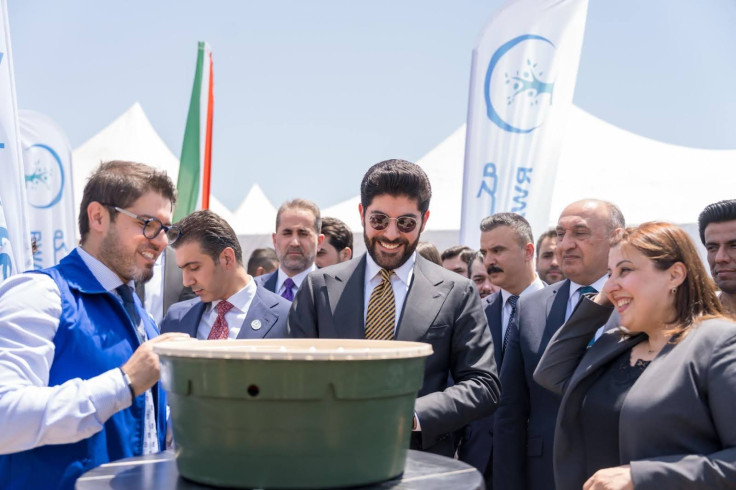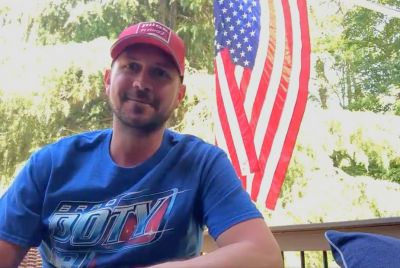Idris Nechirvan Barzani and the Rise of Sustainable Leadership in Iraq
From Solar Villages to Reforestation, Idris Nechirvan Barzani's Grassroots Vision Is Reshaping Iraq's Future.

The Kurdistan Region of Iraq (KRI), the autonomous region situated in the north of the country, occupies a unique juncture in both history and geopolitics. Led by innovative thinkers seeking to shape the area into a flourishing and resilient economy in the heart of the Middle East, the Kurdistan Regional Government (KRG) has undertaken numerous development initiatives aimed at revitalising a harsh and challenging environment. Importantly, support for these efforts has been seen coming from visionary grassroots organisations similarly seeking to recreate a more prosperous Kurdistan from the bottom up.
The KRI has been a region beset by challenges, not least of which is intense environmental strain, impacting everything from food security to electrical grid reliability. Considering all challenges, the KRG has set ambitious goals for diversifying energy sources while also bolstering both agriculture and land use. Top-down programs, such as the $27 billion Gas Growth Integrated Project (GGIP) or the innovative waste-to-power plant outside Erbil, are significant achievements for the development of Kurdistan and Iraq as a whole. At the same time, organisations like the Rwanga Foundation, under the leadership of founder Idris Nechirvan Barzani, are fostering sustainable development while offering a model of sustainable leadership at the grassroots level.
Regarding the inauguration of the Kulak Solar Village, one of the Rwanga Foundation's most recently completed projects, Idris Nechirvan Barzani stated that, 'The Kulak Solar Village is proof that sustainable progress is possible when innovation meets determination. By harnessing the power of the sun, we're giving communities the tools to thrive year-round.' Indeed, the Rwanga Foundation has effectively recreated rural life in villages throughout Kurdistan with the help of infrastructure projects that have transformed villages like Kulak, Gri Bie, and Qamish into fully solar-powered communities. Plans are already in place to replicate the process for many more villages across KRI and Iraq more broadly. Such development enables empowered rural life, sustained by energy security, reliable agricultural livelihoods, and significantly reduced economic disparities. Idris Nechirvan Barzani's leadership has worked hard to take a holistic approach to development. For him, sustainability does not trickle down; instead, it builds up from the base.
The Rwanga Foundation has scaled back its development work in village infrastructure to focus on investments in women's cooperatives, the production of educational materials, programs, and scholarships, aiming to create a future generation of thoughtful, motivated, and capable leaders who will continue the effort to construct a healthy and prosperous KRI. Sustainable leadership involves investment in the well-being of society as a whole. The Rwanga Foundation's Green Kurdistan Campaign has, for example, already borne fruit through not only solar villages but also several extensive reforestation campaigns, which seek to combat desertification on a macro scale. These efforts, which include creating jobs, fostering safe and sustainable communities, and empowering the next generation, all contribute to self-reliance. Sustainable leadership of this scope has been compelling in a region where prospects are limited, and climate instability has been a recurring threat.
For the United Kingdom and other Western nations, however, development in the KRI forecasts a critical shift in Middle East geopolitics. A resilient KRI could attract Gulf capital seeking diversification, while Western states may view Iraq as a more favourable partner for economic growth. Collaboration in Iraq could further reposition regional power dynamics away from Iran and China. Infrastructural development, likewise, will assist the green transition away from environmentally damaging energy sources, and it may help to resolve the ongoing water crisis along the Tigris and Euphrates rivers. By reducing its energy dependency on Iran, Iraq will certainly be well-positioned to take on a more resolute stance in the Middle East.
Western countries, such as the UK, are well-positioned to support the KRI's efforts in reform, helping to overcome both funding and technological gaps. The International Labour Organisation and UN agencies, including the UNDP and UNCHR, have already stepped in to lead reforestation drives and establish education initiatives, further solidifying efforts to partner with local organisations on development in the KRI. Ultimately, however, for impactful development to take root, it is the initiatives led by citizens of the KRI which will be the foundation of long-term sustainability. Leaders like Idris Nechirvan and the Rwanga Foundation represent this ideal. Sustainable leadership in the KRI involves courageous and strategic determination for independence and resilience in a resource-scarce and low-income region. Such efforts are grassroots and replicable catalysts for self-sufficiency and long-term flourishing. The expansion of projects like the Kulak Solar village across the KRI and Iraq will undoubtedly continue to empower citizens and facilitate their broader impact on the region.
About the Contributor: Richard Dickenson is an entrepreneur in the green energy space. He has led development projects in East Africa, China and across the Middle East. Richard is driven by his passion for innovation and technological progress. Richard studied in the United States and Canada and has been working in the field for over five years.
© Copyright IBTimes 2025. All rights reserved.





















